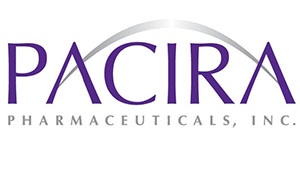 Pacira Pharmaceuticals (NSDQ:PCRX) said today the Phase IV study of its Exparel bupivacaine liposome injection in patients undergoing total knee arthroplasty met its co-primary endpoints for postsurgical pain and opioid reduction.
Pacira Pharmaceuticals (NSDQ:PCRX) said today the Phase IV study of its Exparel bupivacaine liposome injection in patients undergoing total knee arthroplasty met its co-primary endpoints for postsurgical pain and opioid reduction.
The anesthetic achieved statistical significance for secondary endpoints including time to 1st opioid use and the percentage of patients who did not require opioids following the procedure.
The 139 patients were randomized to an Exparel-based or a bupivacaine-based multimodal pain regimen of oral acetaminophen, celecoxib and pregabalin, according to Pacira.
The Parsippany, N.J.-based company said it analyzed pain intensity scores from 12 to 48 hours following surgery and the total opioid consumption as morphine equivalents from zero to 48 hours after surgery.
Patients who received Exparel achieved a statistically significant reduction in pain scores compared to their counterparts in the control group. The researchers also concluded that those who were treated with Exparel used significantly fewer opioids than patients who did not in the 2 days following surgery.
“The operating room is the gateway to opioid abuse and places patients at serious risk for addiction and dependence,” chairman & CEO Dave Stack said in prepared remarks. “The results of this study provide further evidence that Exparel effectively reduces, and in some cases, eliminates the use of opioids while providing prolonged postsurgical pain relief to patients undergoing complex and painful knee replacement surgery with a simple inexpensive multimodal design. A recent survey determined that one in 10 opioid naïve patients are opioid dependent 6 months after opioid-driven postsurgical pain management – we believe Exparel can play a critical role in taking on this national issue.”

